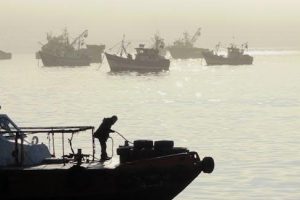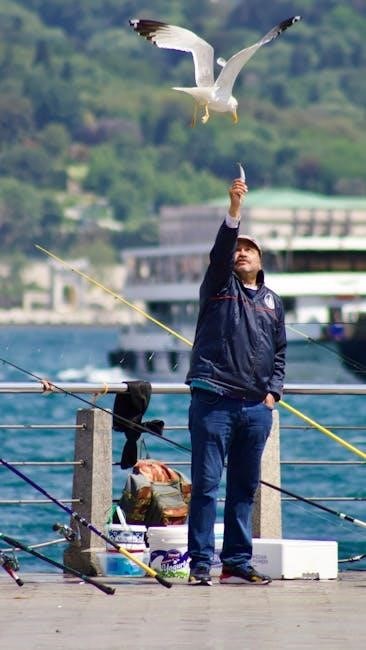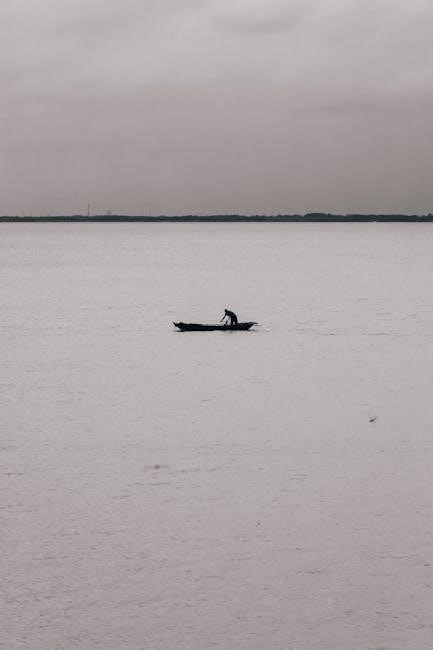carson pegasus fishing regulations pdf

The Carson Pegasus Fishing Regulations outline guidelines for sustainable fishing practices, ensuring conservation and responsible resource management. These rules are essential for maintaining healthy fish populations and ecosystems.
Overview of Fishing Regulations
Fishing regulations in Carson Pegasus are designed to promote sustainable fishing practices while ensuring the conservation of aquatic resources. These rules cover various aspects, including permits, gear restrictions, and species-specific guidelines. The regulations aim to balance recreational and commercial fishing needs with environmental protection. Key components include bag limits, size restrictions, and seasonal closures to protect vulnerable species. Additionally, restrictions on certain fishing gear and methods help minimize ecological impact. The regulations are regularly updated to reflect scientific research and environmental conditions, ensuring long-term sustainability of fish populations. Anglers are encouraged to familiarize themselves with these guidelines to contribute to the preservation of Carson Pegasus’s aquatic ecosystems while enjoying their fishing experiences responsibly.
Importance of Adhering to Regulations
Adhering to Carson Pegasus fishing regulations is crucial for maintaining the balance of aquatic ecosystems and ensuring the sustainability of fish populations. These rules help prevent overfishing, protect endangered species, and preserve habitats. By following regulations, anglers contribute to the long-term health of the environment and the fishing industry. Non-compliance can lead to penalties, harm fish stocks, and disrupt the ecosystem. Responsible fishing practices, guided by these regulations, safeguard biodiversity and ensure that future generations can enjoy fishing opportunities. Compliance also supports conservation efforts and promotes a culture of environmental stewardship among anglers. Ultimately, adhering to regulations is essential for the survival of Carson Pegasus’s aquatic resources and the sustainability of recreational and commercial fishing activities.

Fishing Permits and Licenses
Fishing permits and licenses are essential for legal and sustainable fishing in Carson Pegasus. They ensure compliance with regulations, support conservation efforts, and promote responsible fishing practices.
Types of Fishing Permits
Carson Pegasus offers various fishing permits tailored to different needs. Recreational permits are for personal use, while commercial permits allow for catch sale. Special permits enable seasonal or specific species fishing. Junior and senior permits provide discounted access for minors and elders. Non-resident permits cater to visitors, ensuring equal fishing opportunities. Each permit type has unique requirements and restrictions to maintain sustainable fishing practices and resource conservation. These permits are issued by local authorities and must be carried while fishing to avoid penalties. Proper documentation and adherence to permit terms are crucial for compliance with Carson Pegasus fishing regulations.
How to Obtain a Fishing License
Obtaining a fishing license in Carson Pegasus involves a straightforward process. Applicants can apply online through the official fisheries website or visit a local licensing office. Required documents include identification and proof of residency. For non-residents, additional fees may apply. Licenses are issued upon payment and completion of a brief application form. Online applicants receive an electronic copy, while in-person applicants get a physical copy. Licenses are typically valid for a specific period, ranging from daily to annual passes. It is essential to carry the license during fishing activities to comply with regulations and avoid penalties. Ensuring all information is accurate during the application process is crucial for a smooth experience.
Cost and Validity Period
The cost of a fishing license in Carson Pegasus varies based on residency status and license type. Resident licenses are generally more affordable, while non-resident licenses incur higher fees. Licenses are available for different durations, including daily, weekly, and annual passes, with prices adjusted accordingly. Commercial fishing licenses carry additional costs due to their specialized nature. The validity period for most licenses is January 1 to December 31, ensuring consistent regulation enforcement. Fees are non-refundable and subject to change based on annual reviews. Discounts may apply for seniors, veterans, or youth anglers. It is advisable to check the official Carson Pegasus Fisheries website for the most current pricing and validity details.

Species-Specific Regulations
Species-specific regulations in Carson Pegasus ensure sustainable fishing by setting bag limits, size restrictions, and seasonal closures. These rules vary by species to protect vulnerable populations and ecosystems.

Bag Limits and Size Restrictions
Bag limits and size restrictions are critical components of Carson Pegasus fishing regulations, ensuring the sustainability of fish populations. These rules dictate the maximum number of fish anglers can catch per day and specify the minimum or maximum size of fish that can be legally retained. Such measures help prevent overfishing, protect juvenile fish, and maintain ecological balance. For example, certain species may have strict size limits to allow them to reach maturity before being harvested. Additionally, some species may be subject to catch-and-release-only regulations during specific times of the year. Enforcement of these rules is essential to preserve fish stocks for future generations and maintain the health of aquatic ecosystems. Penalties for violations, such as fines or license suspension, underscore the importance of compliance. Regular updates to these regulations reflect ongoing conservation efforts and environmental adaptability.
Protected Species
Carson Pegasus fishing regulations identify protected species that are legally safeguarded from fishing activities. These species, often endangered or vulnerable, are crucial for maintaining ecological balance. Anglers are prohibited from targeting or retaining protected fish, and penalties for violations are severe. Specific gear restrictions may apply to minimize bycatch of these species. Conservation efforts focus on habitat preservation and population recovery. Accidental catches must be released unharmed, and reporting such incidents is encouraged. These measures ensure the long-term survival of protected species and contribute to biodiversity. Compliance with these regulations is essential for ethical and sustainable fishing practices, supporting both environmental and recreational fishing goals. Strict enforcement helps protect these species for future generations.
Seasonal Variations in Regulations
Carson Pegasus fishing regulations incorporate seasonal variations to adapt to ecological changes and fish population dynamics. These adjustments ensure sustainable fishing practices throughout the year. During breeding seasons, certain areas may be closed to protect spawning fish, while other periods might allow for limited catches. Bag limits and gear restrictions can also vary by season to prevent overfishing. Specific permits may be required for seasonal activities, such as ice fishing or night fishing. These changes are based on scientific assessments and environmental conditions. Anglers must stay informed about current regulations, as they are subject to amendment based on conservation needs and biological data. Compliance with seasonal rules is vital for maintaining fish stocks and supporting biodiversity. Regular updates ensure the regulations remain effective and responsive to environmental changes.

Gear and Equipment Restrictions
Carson Pegasus fishing regulations specify allowable gear and equipment to ensure sustainable practices. Restrictions on nets, traps, and certain fishing methods help protect fish populations and maintain ecological balance.
Allowed Fishing Gear
Under the Carson Pegasus Fishing Regulations, specific types of fishing gear are permitted to ensure sustainable and responsible fishing practices. These include single or multiple hooks, lines, and rods designed for recreational or commercial use. The regulations emphasize the use of gear that minimizes bycatch and protects non-target species. For example, circle hooks are often recommended to reduce the mortality rate of caught fish and other marine life; Additionally, certain nets and traps may be allowed under specific conditions, provided they meet size and material standards set by the regulations. The use of environmentally friendly gear is encouraged to promote conservation efforts and maintain the balance of aquatic ecosystems.
Prohibited Fishing Methods
The Carson Pegasus Fishing Regulations strictly prohibit certain fishing methods to protect fish populations and habitats. These include the use of dynamite, electrical devices, and toxic substances, which cause irreversible damage to ecosystems. Additionally, netting or trapping methods that indiscriminately capture non-target species are banned. The regulations also prohibit fishing with gear that exceeds specified size limits or is designed to overharvest. Such practices are considered harmful and unsustainable. Violations of these prohibitions can result in penalties, including fines and license revocation. The goal is to ensure fishing activities align with conservation objectives and promote the long-term health of aquatic resources.
Net and Trap Regulations
The Carson Pegasus Fishing Regulations impose strict guidelines on the use of nets and traps to minimize bycatch and protect vulnerable species. Only approved net types and sizes are permitted, with specific mesh sizes to allow juvenile fish to escape. Traps must be constructed to reduce injury to caught species and minimize habitat disruption. The use of bait traps, except for designated species, is prohibited. Additionally, all nets and traps must be clearly marked with the owner’s identification to prevent theft and unauthorized use. Regular inspections are conducted to ensure compliance, and violations may result in gear confiscation and penalties, emphasizing sustainable and responsible fishing practices.

Environmental Considerations
Carson Pegasus Fishing Regulations emphasize habitat protection, reducing bycatch, and promoting sustainable practices to maintain biodiversity and prevent ecosystem degradation, ensuring a balanced environment for marine life.
Habitat Protection
Habitat protection is a critical component of Carson Pegasus Fishing Regulations, focusing on preserving aquatic ecosystems and spawning grounds. These regulations ensure that fishing activities do not disrupt sensitive environments or threaten biodiversity. By enforcing no-fishing zones in critical areas, the regulations safeguard habitats essential for fish reproduction and growth. Additionally, measures are in place to prevent pollution and minimize gear damage to underwater habitats. This approach ensures sustainable fishing practices while maintaining the health of marine and freshwater ecosystems for future generations. Strict penalties are imposed for violations, emphasizing the importance of environmental stewardship in fishing activities. Habitat protection is vital for balancing human needs with ecological preservation.
Catch-and-Release Practices
Catch-and-release fishing is highly encouraged under Carson Pegasus regulations to conserve fish populations and maintain ecological balance. Anglers are required to handle fish gently, using barbless hooks and avoiding excessive handling to minimize stress. The use of nets is recommended to prevent injury during landing. Fish should be released quickly, ensuring they remain healthy post-release. This practice helps sustain fish stocks, particularly for species with declining numbers. Compliance with catch-and-release guidelines is monitored, and educational campaigns promote responsible fishing methods. By adhering to these practices, anglers contribute to the long-term health of aquatic ecosystems while enjoying their sport. Catch-and-release is a cornerstone of sustainable fishing in Carson Pegasus waters.
Impact of Fishing on Ecosystems
Fishing activities can significantly impact aquatic ecosystems, affecting both target species and non-target organisms. Overfishing disrupts food chains, reducing biodiversity and altering ecosystem dynamics. Bycatch, the catching of non-target species, further strains ecosystems. Habitat destruction caused by certain fishing gears, like bottom trawls, damages underwater environments. Moreover, fishing gear abandonment contributes to marine pollution, harming marine life. Regulations aim to mitigate these impacts by enforcing gear restrictions and closed areas. Sustainable fishing practices, such as catch-and-release and seasonal closures, help preserve ecosystem balance. Anglers must adhere to these guidelines to ensure the long-term health of Carson Pegasus ecosystems, fostering a balance between recreational fishing and environmental conservation. Responsible fishing practices protect both fish populations and their habitats.
Seasonal Fishing Regulations
Seasonal fishing regulations ensure sustainable fishing by adapting to species’ life cycles. Specific fishing seasons, closed areas during breeding, and special permits protect fish populations during vulnerable periods.
Fishing Seasons for Different Species
Fishing seasons for different species are tailored to their life cycles and environmental conditions. Trout fishing typically occurs in spring and fall, while salmon seasons vary by migration patterns. Closed periods protect spawning fish, ensuring sustainable populations. Anglers must consult annual regulation updates to stay informed about species-specific allowances and restrictions. Seasonal adjustments help maintain ecological balance and prevent overfishing. By aligning with natural cycles, these regulations promote biodiversity and support recreational and commercial fishing industries. Adherence to seasonal guidelines is crucial for conservation efforts and ensuring future fishing opportunities. Anglers are encouraged to check official resources regularly for the latest updates on fishing seasons and species-specific rules.
Closed Areas During Breeding Seasons
Closed areas during breeding seasons are designated to protect fish populations during vulnerable life stages. These areas, often near spawning grounds or nursery habitats, are temporarily off-limits to fishing. Restrictions aim to minimize disturbances that could disrupt breeding behaviors or damage eggs and juveniles. Specific species, such as salmon or trout, may have designated closed zones to ensure their survival. Anglers must familiarize themselves with these closures, as they vary by location and time. Authorities enforce these measures to maintain ecological balance and promote sustainable fishing practices. By respecting closed areas, anglers contribute to the long-term health of fish populations and the environment. Regular updates are available in official fishing regulation guides.
Special Permits for Seasonal Fishing
Special permits for seasonal fishing are required for certain activities during specific times of the year. These permits ensure that fishing practices align with conservation goals and seasonal ecological conditions. Anglers targeting species like salmon or steelhead during their migration periods may need additional authorization. Permits often include restrictions on gear, catch limits, and fishing locations to protect vulnerable populations. Applications for these permits can be submitted through official channels, with fees and requirements varying by region. Obtaining a special permit demonstrates a commitment to sustainable fishing and helps maintain the balance of aquatic ecosystems. Failure to comply with permit conditions can result in penalties, emphasizing the importance of adherence to seasonal regulations. Always check local guidelines for the most up-to-date information.
Safety Guidelines
Adhere to safety protocols, use proper gear, and stay informed about weather conditions. Always carry emergency equipment and follow boating regulations to ensure a safe fishing experience.
Boating Safety Tips
Always file a float plan with a friend or family member before heading out. Ensure your boat is equipped with life jackets, flares, and a first-aid kit. Conduct a pre-trip inspection of the vessel, including the engine, lights, and steering. Avoid alcohol while operating the boat, as it impairs judgment and reaction times. Stay aware of weather conditions and monitor forecasts to avoid storms. Keep a charged phone or VHF radio for emergencies. Maintain a safe distance from other boats and swimmers. Be cautious of underwater obstacles and follow navigation markers. Respect speed limits and no-wake zones to prevent accidents. Ensure all passengers are seated properly and hold on when the boat is in motion. Stay informed about local boating regulations and environmental guidelines to promote safe and responsible fishing practices.
Weather Conditions and Fishing
Weather conditions significantly impact fishing experiences in Carson Pegasus. Fish are more active during stable weather, such as overcast skies or light winds. Avoid fishing during thunderstorms, as lightning poses serious risks. Strong winds can reduce visibility and make boating hazardous. Cold fronts often cause fish to seek deeper waters, while warm fronts can increase activity. Monitor water temperatures, as they influence species behavior. Be prepared for sudden changes in weather by carrying appropriate gear and staying informed through forecasts. Adverse conditions may require postponing trips to ensure safety and compliance with regulations. Always prioritize safety and environmental awareness when fishing in varying weather conditions.
Emergency Procedures
Fishing in Carson Pegasus requires preparedness for emergencies. Always carry a first-aid kit, a reliable communication device, and a whistle to signal for help. In case of an accident, remain calm and provide immediate assistance. If someone is injured, stabilize them and seek medical help as soon as possible. For equipment malfunctions, such as a broken net or tangled line, carefully assess the situation and take corrective action. In severe weather, immediately seek shelter or return to shore. Know the emergency contact numbers and locations of nearby rescue services. Familiarize yourself with basic life-saving techniques and ensure all crew members are aware of emergency protocols. Reporting incidents to authorities is crucial for safety and regulatory compliance. Stay informed about potential hazards and plan accordingly to minimize risks during your fishing trip.
Enforcement and Penalties
Enforcement of Carson Pegasus fishing regulations is carried out by designated agencies through regular inspections and patrols. Penalties for violations include fines and license suspensions to ensure compliance.
Monitoring and Enforcement Agencies
The enforcement of Carson Pegasus fishing regulations is overseen by dedicated agencies tasked with monitoring compliance and ensuring sustainable fishing practices. These agencies conduct regular patrols, inspections, and surveillance to detect violations. They collaborate with local communities, conservation groups, and law enforcement to maintain adherence to the rules. Advanced technologies, such as aerial surveillance and electronic monitoring systems, are employed to track fishing activities effectively. Additionally, these agencies work to educate anglers about regulation importance and provide resources for reporting illegal fishing practices. Their efforts are crucial in preserving fish populations and habitats, ensuring the long-term health of the ecosystem. Strict enforcement measures are in place to address violations promptly and fairly.
Penalties for Violations
Violations of Carson Pegasus fishing regulations result in significant penalties to ensure compliance and protect resources. Fines are imposed, ranging from moderate to substantial amounts, depending on the severity of the offense. Repeat offenders may face suspension or revocation of fishing licenses. In severe cases, fishing gear and illegal catches may be confiscated. Penalties also extend to commercial operations, with potential legal action against businesses violating regulations. Additionally, restitution or community service may be required for environmental damage. These measures aim to deter illegal activities and uphold the integrity of conservation efforts. Strict enforcement ensures that violations are addressed promptly and fairly, maintaining the balance between fishing practices and ecosystem preservation.
Reporting Illegal Activities
Reporting illegal fishing activities is crucial for maintaining compliance with Carson Pegasus fishing regulations. Authorities encourage the public to report violations such as unauthorized fishing, gear misuse, or catching protected species. A dedicated hotline and online reporting system are available for submitting concerns confidentially. Reports should include details like location, time, and descriptions of individuals or vessels involved. Confidentiality is ensured to protect informants from retaliation. Prompt reporting helps enforcement agencies address violations swiftly, preserving fish populations and habitats. Public involvement is vital for upholding conservation efforts and ensuring sustainable fishing practices. Every report contributes to the long-term health of aquatic ecosystems and the integrity of fishing regulations in the Carson Pegasus region.

Community and Conservation Efforts
Community involvement is vital for sustainable fishing practices in Carson Pegasus. Local initiatives promote education, habitat restoration, and responsible fishing methods to ensure long-term conservation success.
Local Fishing Communities
Local fishing communities play a crucial role in Carson Pegasus by fostering a culture of sustainability and adherence to regulations. These communities often organize workshops and events to educate anglers about best practices, ensuring that fishing activities align with conservation goals. By engaging in collaborative efforts, they help maintain the balance between recreational and commercial fishing interests, preserving the region’s aquatic resources for future generations. Their involvement in monitoring and reporting illegal activities further strengthens the enforcement of fishing regulations, showcasing the importance of community-driven initiatives in environmental stewardship.
Conservation Programs
Conservation programs in Carson Pegasus focus on protecting fish populations and habitats through targeted initiatives. These programs include habitat restoration projects, which aim to enhance spawning grounds and water quality, ensuring a thriving ecosystem for various fish species. Additionally, efforts are made to monitor fish populations and prevent illegal fishing practices, which can deplete resources. Educational campaigns are also a key component, raising awareness about the importance of sustainable fishing and the role individuals play in conservation. By addressing both environmental and human factors, these programs contribute to the long-term sustainability of fishing in the region, benefiting both the ecosystem and the community.
Education and Awareness Campaigns
Education and awareness campaigns play a vital role in promoting sustainable fishing practices in Carson Pegasus. These initiatives aim to inform anglers, local communities, and visitors about the importance of adhering to fishing regulations. Through workshops, social media, and printed materials, the campaigns highlight key issues such as protected species, bag limits, and the impact of illegal fishing. Educational programs also focus on environmental stewardship, encouraging the public to report violations and participate in conservation efforts. By fostering a sense of responsibility and knowledge, these campaigns help ensure that fishing in Carson Pegasus remains sustainable for future generations, balancing recreational and ecological needs effectively.